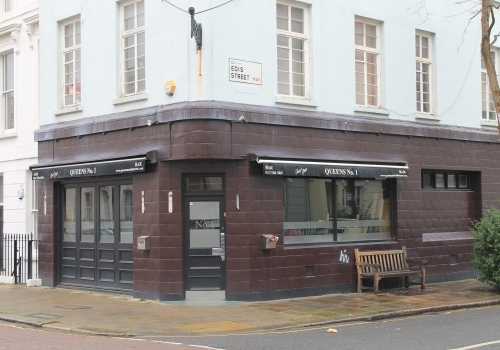Comedian Harry Enfield wins neighbourhood planning battle to turn Primrose Hill pub into family home
Wednesday, 15th May 2013

(Harry Enfield pic: Damien Everett)
Published: 15 May 2013
By RICHARD OSLEY
“LOADSAMONEY” comedian Harry Enfield has won his bid to turn a Primrose Hill pub into a family home, ending hopes among former regulars that it would one day re-open.
Planners gave consent for the former Queens No1 bar in Edis Street to be converted into a five-bedroom family house last week.
Council documents reveal that 37 objections were received from people living nearby.
Mr Enfield – famous for sketch show characters such as Tim Nice-But-Dim and Wayne Slob, and repetitive catchphrases including “now I don’t believe you wanted to do that” – had faced a backlash from neighbours over the plans.
Recognising this, he took the step of writing personally to them earlier this year about his plans for the pub, which closed last year.
Mr Enfield claimed it was hard to make the property work as a restaurant and bar, with six other pubs in the area.
“My wife is a west Londoner and we moved there a decade ago,” he said. “However, she has agreed to move back to the Hill in a few years when our children have finished at their schools. We bought the pub with the idea that we might one day live in the top floors and let the bottom floors to a friend of ours who was keen to run it as an all-day restaurant. Sadly, he has now decided he thinks it is too small to make financial sense to take it on.”
Mr Enfield warned that every option for the property would “take time and stretch us financially”.
The council planning files, available for all to see online, show people who wrote to the Town Hall asking for the proposals to be thrown out had a variety of reasons for their objections, including that Primrose Hill would be more bland without the pub, the application went against how the Victorians wanted the area to look, and that a “piece of history” was being lost.
Five letters of support were received by Camden, including letters which argued London needed more housing.
The application was not transferred to the council’s committee of elected councillors and the final decision to allow Mr Enfield to get on with the work was taken by civil servants.
The consent has been followed by three new applications, which included removing ground-floor tiling and the pub’s old sliding doors.
Tony Peters, the pub’s former landlord, said in January: “This is a great little street with a sense of community. People know each other and everyone would like it to remain a pub. It should not be changed into a house. It plays such an important role in the area: where are people going to meet, socialise, hold their celebrations, their wakes? McDonald’s? Starbucks? It was a good pub with a good clientele, and it was successful.”